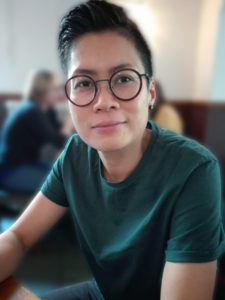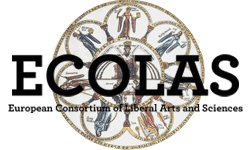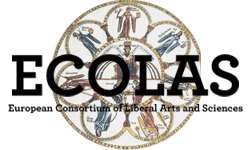Kathy-Ann Tan
 Kathy-Ann Tan teaches at Bard College Berlin and is currently visiting faculty at the English and American Studies department at Uppsala University in Sweden. She received her Ph.D. (summa cum laude) and Habilitation in North American Literatures and Cultures from the University of Tübingen in Germany. She also holds an M.Litt in English from Trinity College Dublin and a B.A. (Hons) in English from the University of Cambridge, UK. She was a Fulbright Scholar at the University of California, Irvine in 2015, and at the University of Maryland, College Park in 2010.
Kathy-Ann Tan teaches at Bard College Berlin and is currently visiting faculty at the English and American Studies department at Uppsala University in Sweden. She received her Ph.D. (summa cum laude) and Habilitation in North American Literatures and Cultures from the University of Tübingen in Germany. She also holds an M.Litt in English from Trinity College Dublin and a B.A. (Hons) in English from the University of Cambridge, UK. She was a Fulbright Scholar at the University of California, Irvine in 2015, and at the University of Maryland, College Park in 2010.
Kathy-Ann’s research interests lie in the fields of Postcolonial and Decolonial Studies, Critical Race Theory, Gender and Queer Studies, Visual Cultures and Performance, Language Poetry and Citizenship Studies. Her second monograph, Reconfiguring Citizenship and National Identity in the North American Literary Imagination (Detroit: Wayne State UP, 2015) investigates the configurations and articulations of U.S. and Canadian citizenship that are enacted and renegotiated in modern literary texts,
particularly during periods of emergence and crisis. Her current research project, “The Aesthetics of Decolonization: Performance, Affect and Visual Perception”, examines how dominant narratives of Western modernity are challenged and re-scripted in contemporary visual art and performance, cultural archives and social formations. It considers how decolonial aesthetics demand the reader, viewer or audience to read against the grain, to “unlearn” (Spivak 1993) normative interpretations that have been shaped by colonial perspectives and histories. In this way, her project engages with decolonial strategies of unsettling and delinking from Western-centric epistemologies and frames of reference.
Project Supported by J. J. Kidd Fellowship
My J.J. Kidd Fellowship project, “Critical Diversity and Decolonial Methodologies in the Liberal Arts Classroom” is an offshoot of my larger research project on Decolonial aesthetics. In it, I aim to develop a methodology of critical diversity and decolonial practice in the Liberal Arts classroom. This is a methodology that draws on and brings together a growing body of intersectional research and scholarship on the cultural politics of education, in particular, decolonial and antiracist education. Concurrently, my project aims to harness the potential of a Liberal Arts higher education in fostering antiracist, critical diversity and decolonial ways of thinking and doing. While the need for “diversity management” has been acknowledged in companies and businesses globally, the importance of implementing a pedagogy of critical diversity in the university classroom faces very different challenges. By bringing together the writings, research, and experiences of scholars and academics working on this topic, as well as creating a space and platform for dialogue and exchange, the project will be invaluable for those seeking to employ strategies and methodologies of critical diversity in the Liberal Arts classroom. In this respect, my project ties in with one of the three project areas of the Erasmus+ BLASTER grant: “Teacher Training and Professional Development in the Liberal Arts and Sciences”.
Liberal Arts & Sciences And Me
The university is a space that needs to both acknowledge its colonial histories (cf. Arvin, Tuck and Morrill 2013) and take steps to redress those histories. The objective of my project is to examine the conditions of cultural and knowledge production and dissemination in higher education, particularly in the Liberal Arts, the oldest program of higher education in Western history, while attuned to notions of accountability and social justice. By drawing on pedagogies of dissent, survival, resistance and institutional critique, my project addresses the question posed by postcolonial feminist scholar Chandra Mohanty: “What does it mean to think through, theorize, and engage in questions of difference and power?” Working in a Liberal Arts institution gives me the invaluable opportunity to engage in such difficult but necessary conversations that are central to the wider projects of decoloniality and intersectionality.




